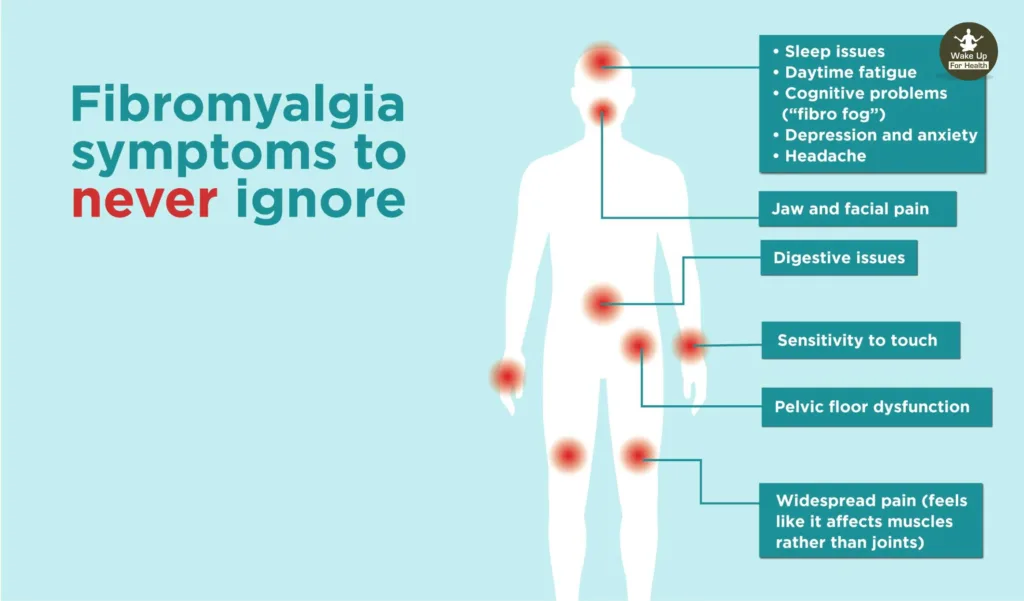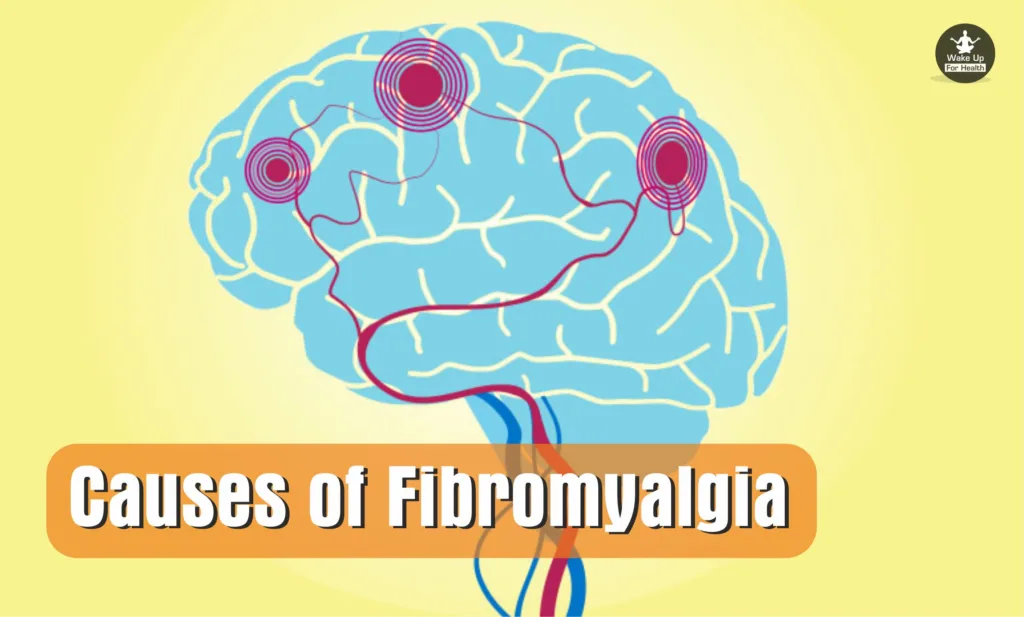Fibromyalgia or fibromyalgia syndrome is a condition that causes pain all over the body. People with fibromyalgia often experience other symptoms, such as extreme fatigue or problems with sleep, mood, or memory. Fibromyalgia affects more women than men. The pain, extreme tiredness and lack of sleep it causes can affect the ability to perform daily tasks.
Fibromyalgia can be caused by a problem with the nerves and pain signals in the brain. Fibromyalgia has been compared to arthritis. Fibromyalgia, like arthritis, causes pain and fatigue, but unlike arthritis, fibromyalgia syndrome does not cause redness and swelling or damage to the joints. This disease can also cause lack of sleep. The frustration of dealing with this problem can lead to depression and anxiety.

Understanding Fibromyalgia Syndrome
Fibromyalgia syndrome is a disease characterized by widespread musculoskeletal pain throughout the body accompanied by memory, mood, and sleep disorders. Experts say that fibromyalgia syndrome amplifies the patient’s sense of pain factors, which is because the painful senses are affected by the way the patient’s brain processes pain signals on this body.
What are the Symptoms of Fibromyalgia?, Symptoms and Causes, Treatment Methods
If a person is suffering from the condition of fibromyalgia then the main symptoms that he/she can notice is tenderness and pain in the joints and muscles all over the body. This pain usually shifts from one location to another, but a person must experience pain for at least three months to meet the criteria for a diagnosis of fibromyalgia syndrome.
The pain must be severe and must be in specific parts of the body. Other conditions such as arthritis should also not be present. Some other symptoms that may be displayed by a person suffering from the condition of fibromyalgia syndrome are :
The main Symptoms of Fibromyalgia are as follows :

1. Extreme Fatigue
In fibromyalgia syndrome, the muscles are mainly affected. Due to this, weakness and tiredness is experienced. It increases and decreases rapidly with time.
2. Sleeplessness
Severe pain especially in the neck and back. Due to this, the problem of insomnia arises and there is constant fatigue in the person’s body.
3. Lack of Concentration
Fibromyalgia in rheumatic condition affects the musculoskeletal function of the body. It also affects the functioning of the nervous system of the body due to which a person has problems with concentration and lack of memory.
4. Migraine
Due to excessive stress, a person suffering from fibromyalgia syndrome always suffers from headache and migraine problem. In such a situation, instead of taking headache medicine yourself, go to the doctor and get yourself examined.
5. Jaw and Mouth Pain
This is a common symptom of fibromyalgia in which muscle stiffness causes pain in your jaw and mouth. If such symptoms are seen then immediately see an orthopedic specialist.
6. Anxiety and Stress
Due to continuous heavy tiredness and pain in the body, you can also become a victim of anxiety. In some cases patients reach the stage of depression.
7. Numbness
On suffering from this disease some parts of the face, hands, arms and legs become numb or sometimes shivering starts in them. This happens because in this disease, the muscles of the face, neck and legs and the joints of the body are most affected.
8. Increased Sensitivity
Suffering from this disease increases the sensitivity to smell, noise, bright light, cold, medicines and certain foods. If you see such symptoms, do not ignore it, it can be a symptom of fibromyalgia syndrome.
What are the Causes of Fibromyalgia Syndrome?

Medical researchers and doctors do not yet know what causes fibromyalgia. However, after decades of research, some of the following factors are believed to cause fibromyalgia:
1. Infection
Preexisting diseases can cause fibromyalgia or worsen its symptoms.
2. Genetic Factor
Fibromyalgia is often genetic. If someone in your family has fibromyalgia, your risk for developing it is higher. Researchers believe that certain genetic variations may play a role, although those genes have not yet been identified.
3. Trauma
People who have experienced physical or emotional trauma can get fibromyalgia. This condition has been linked to post traumatic stress disorder.
4. Stress
Like trauma, stress can have effects on your body for months and even years. Stress has been linked to hormonal disturbances that can lead to fibromyalgia.
What are the Risk Factors for Fibromyalgia?
Following are the risk factors for fibromyalgia-
1. Gender
Fibromyalgia is found more often in women than in men.
2. Family History
If you have a relative with fibromyalgia, you are more likely to develop it too.
3. Rheumatic Diseases
If you have a rheumatic disease, such as rheumatoid arthritis or lupus, you may be more likely to develop fibromyalgia.
Which Foods Trigger Fibromyalgia Pain?
The symptoms of fibromyalgia may worsen if a person suffering from the condition consumes the following foods.
1. Sugar
If a person has a habit of consuming a lot of sugar, then it needs to be reduced because according to a study, foods rich in sugar increase the pain of fibromyalgia.
2. Carbohydrates
If a person is consuming a lot of refined carbohydrates like bread, pastries, white rice and cookies, it will be very easily digested. This increases the level of blood sugar.
However, a person starts feeling hungry again, resulting in low blood sugar. This fluctuation in blood sugar levels will cause a worsening of fibromyalgia pain and fatigue.
3. Processed Foods
Foods that are processed contain unhealthy fats and sugars that cause inflammation.
4. Alcohol
According to one of the recent studies, it has been found that if a person with fibromyalgia consumes alcohol, their symptoms will flare-up.
Best Pain Reliever for Fibromyalgia?
One of the better options for reducing the pain of fibromyalgia is to use pain relievers. A doctor may prescribe any over-the-counter pain reliever such as naproxen sodium, ibuprofen aspirin to reduce the pain.
1. Serotonin and Norepinephrine Reuptake Inhibitors (SNRIs):
Medication belonging to the class of SNSRIs reduce symptoms of pain, mood and sleep problems. The main drugs that are used for the treatment of fibromyalgia are milnacipran and duloxetine.
2. Gabapentin
This drug has been proven to not only reduce fatigue, but it also improves sleep and reduces pain.
3. Pregabalin
This drug is approved by the FDA for the treatment of fibromyalgia. It also reduces pain, sleep problems and fatigue.
These medicines can be very helpful in the following ways:
• Pain reliever, will improve sleep quality.
• Pain relievers will help reduce swelling.
• Painkillers reduce muscle pain.
3 thoughts on “Fibromyalgia Syndrome | Symptoms, Causes, Treatment and Medicine”